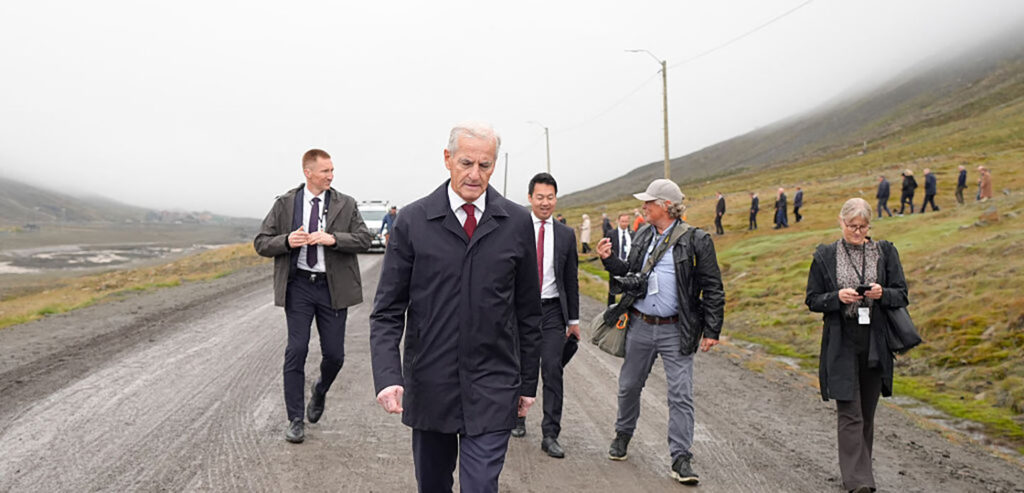The Svalbard archipelago, containing nine principal islands, lies well north of the Arctic Circle and nearly 1,000 kilometers north of Tromsø, Norway’s largest northern city. The island’s population of about 3,000 mainly works in trapping and coal mining. In the summer, tourists come by boat. For much of its history, until a 1920 treaty guaranteed mining rights to several countries, Svalbard was an isolated place in an extremely harsh climate, far from geopolitical concerns. That is changing.
In the past several years, Russia — which has treaty rights to Svalbard — has acted in an increasingly provocative manner. In 2022, Russian trawlers damaged an undersea communications cable. In the past year, several spoofing incidents linked to Russia have endangered aviation in Finnmark with phony GPS signals relayed to pilots. In March, Russia charged Norway with violating the treaty’s restrictions on military activity, and Russian President Vladimir Putin later declared Norway “an unfriendly country,” according to The Economist, a United Kingdom weekly newsmagazine.
The incidents have concerned Norway and its neighbors, all of whom have rapidly increased defense spending to counter the Russian threat. Norway, which can’t maintain military bases or facilities on the islands under the treaty provisions, has reemphasized that Svalbard is part of Norway and NATO.
In August, Norwegian Prime Minister Jonas Gahr Støre and Crown Prince Haakon visited Longyearbyen, the archipelago’s largest settlement. “A hundred years ago, Spitsbergen with its belonging islands and the Bear Island was incorporated in our free, independent and indivisible kingdom. Therefore, we are here to celebrate,” Haakon said.
“Norway has exercised its authority in Svalbard consistently and predictably for 100 years,” Støre said as reported in the Barents Observer, a Norwegian newspaper. “This has helped to keep tensions low in the High North.”
Russia quickly charged that Norway was violating the treaty with military activity and restricting Russia’s scientific and economic endeavors. A Russian Foreign Ministry spokesman said on August 15, 2025, that Norway risked “increased tensions” in Svalbard. It’s an allegation first pushed by Moscow in 2020. Then, Norwegian officials firmly brushed aside Russia’s rhetoric. “Svalbard is part of Norway, [and] it is not natural that we consult with other countries about the execution of powers in our own areas,” Norwegian officials said at the time.
In January, Norwegian Soldiers trained for 100 days in the mainland Norwegian High North, twice as long as units had previously operated in the Arctic winter. The training highlighted the urgency of Norway’s defensive measures, a trend since Russia invaded Ukraine in 2022.
A small community of Russian residents in Barentsburg, one of two Russian settlements on Svalbard’s largest island, has stopped a longstanding tradition of visiting Norwegian settlements on national holidays. And The Economist reported that Russian parades in Barentsburg are more militaristic than in the past with visits from prominent Russian politicians. Scientific exchanges also have ceased, the magazine reported.
Svalbard’s internal tensions reflect international political competition. Located almost halfway between Greenland and Russia’s Murmansk region, which hosts the Northern Fleet among other military units on the Kola Peninsula, Svalbard holds a strategic position in the Arctic approaches from the Atlantic and the North Pole. The Arctic’s melting ice has whet global appetites for cheaper shipping costs and mining.
The Naval News, a U.S. website, reported that if Norway or NATO were to place military assets, likely aircraft, in Longyearbyen, Russia likely would redirect resources to protect its Northern Fleet’s deployment during wartime. Currently, the Northern Fleet routinely conducts training operations in the Barents Sea just south of Svalbard. “Norway has full sovereignty over Svalbard and the exclusive right to exercise authority over the archipelago. We do so in accordance with principles of international law,” Støre said at the August ceremony in Longyearbyen.

